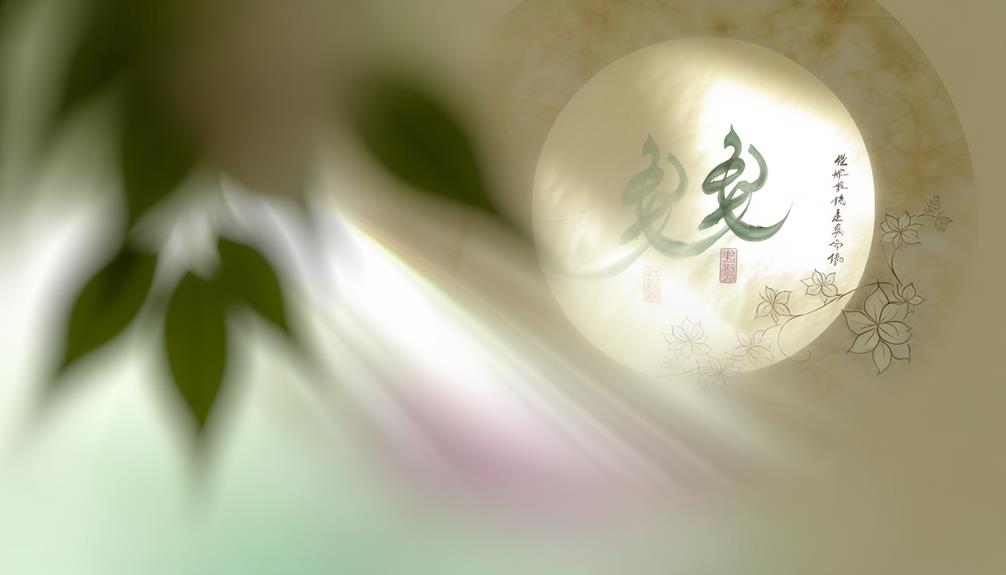Dua Name Meaning in English
The name 'Dua' in English originates from Arabic, encapsulating the act of supplication or prayer. Derived from the verb 'da'a,' which means 'to call' or 'to summon,' it reflects a heartfelt appeal to a higher power, a core practice in Arabic-speaking and Islamic communities.
'Dua' serves as both a spiritual connection and a symbol of faith, highlighting the tradition of invoking divine support. The name enjoys increased popularity due to its profound meaning and melodious quality, making it an attractive choice.
Exploring its cultural, spiritual, and linguistic nuances can provide greater insight into its significance.

Key Takeaways
- The name 'Dua' means 'prayer' or 'supplication' in English.
- Derived from the Arabic verb 'da'a,' meaning 'to call' or 'to summon.'
- Signifies an act of calling upon a higher power for help.
- Represents a deeply ingrained spiritual practice in Arabic-speaking and Islamic cultures.
- Increasingly popular for its profound meaning and melodic sound across various cultures.
Origin of the Name Dua
The name Dua has its origins in Arabic, where it signifies the act of supplication or prayer. Linguistically, it is derived from the verb 'da'a,' meaning 'to call' or 'to summon.'
In its noun form, 'dua' encapsulates the concept of calling upon a higher power for assistance, guidance, or blessings. The simplicity and profoundness of the term have made it a meaningful choice for naming, embodying both spiritual and cultural connotations.
Its usage transcends everyday language, reflecting a deep-rooted tradition of invoking divine support. The etymology and semantics of the name Dua reflect a rich linguistic heritage, offering insight into its enduring relevance and appeal in Arabic-speaking communities and beyond.
Cultural Significance
Dua holds profound cultural significance, symbolizing a deeply ingrained practice of seeking divine intervention and spiritual connection within various Arabic-speaking and Islamic communities. This cultural practice is reflected in daily routines, religious observances, and social interactions, serving as a bridge between the individual and the Divine.
| Aspect | Significance | Example |
|---|---|---|
| Daily Rituals | Personal connection | Morning and evening supplications |
| Religious Events | Communal bond | Prayers during Ramadan |
| Social Customs | Community solidarity | Dua for newlyweds |
| Literature | Cultural preservation | Mention in classical and contemporary texts |
| Art | Symbolic representation | Calligraphy in mosques and homes |
This multifaceted role highlights Dua's importance in fostering spiritual and communal bonds.
Spiritual Connotations
In the domain of spiritual practice, invoking dua embodies a profound act of faith and devotion, seeking to establish a direct and personal connection with the Divine.
The term 'dua' translates to 'supplication' or 'prayer' in English, encapsulating a heartfelt appeal to a higher power for guidance, assistance, or solace.
This act is not merely a ritualistic recitation but a sincere communication, reflecting the supplicant's innermost desires and intentions.
The spiritual connotations of dua underscore its role in fostering a sense of humility and reliance on the Creator.
Popularity of the Name
Increasingly popular in various cultures, the name 'Dua' has garnered attention for its unique sound and significant meaning. This name, with its roots in Arabic, translates to "prayer" or "supplication," reflecting a deep spiritual resonance. Its simplicity and elegance have led to a rise in usage across different regions and communities. The table below illustrates the popularity trends and cultural adoption of the name 'Dua':
| Year | Rank in Popularity |
|---|---|
| 2010 | 1458 |
| 2015 | 1123 |
| 2018 | 897 |
| 2020 | 743 |
| 2022 | 589 |
The increasing frequency of the name indicates a growing appreciation for its profound meaning and melodious quality, making it a favored choice for parents worldwide.
Variations and Similar Names
With the rising popularity of the name 'Dua,' it's valuable to explore its variations and similar names that carry equally profound meanings and cultural significance.
'Dua,' meaning 'prayer' or 'supplication' in Arabic, finds resonance in various cultures. Variations include 'Du'a' and 'Doaa,' which maintain the phonetic and semantic essence.
Similar names that evoke spiritual connotations include 'Amani' (meaning 'wishes' or 'aspirations') and 'Amara' (meaning 'eternal' or 'immortal'). Such names are embraced for their deep, evocative meanings and cross-cultural appeal.
In linguistic terms, the name 'Dua' and its variants provide a succinct yet powerful representation of hope, spirituality, and connection, making them attractive choices for parents globally.
Naming Trends and Insights
Examining the naming trends of 'Dua' reveals its fluctuating popularity over time, markedly shaped by various cultural influences.
Contemporary usage also highlights modern adaptations, reflecting both global interconnectedness and individual preferences.
These factors collectively contribute to the evolving importance and appeal of the name in different regions.
Popularity Over Time
The name 'Dua' has seen a significant rise in popularity over the past decade, reflecting broader naming trends influenced by cultural and social factors. This upward trajectory can be attributed to its melodious sound and meaningful connotation, which resonates with many modern parents.
| Year | Rank in Popularity | Percentage of Use |
|---|---|---|
| 2013 | 1500 | 0.02% |
| 2018 | 900 | 0.05% |
| 2023 | 450 | 0.10% |
The table above illustrates the growing preference for the name 'Dua', signifying its increasing acceptance and appeal. Analyzing such trends provides insight into evolving naming conventions and the influences shaping contemporary choices. The consistent rise underscores a broader movement towards unique and meaningful names.
Cultural Influences
Cultural influences play a pivotal role in shaping naming trends, reflecting societal values and the importance of meaningful, resonant names like 'Dua'.
The name 'Dua', which means 'prayer' or 'supplication' in Arabic, captures a profound spiritual significance. In societies where spirituality and religious practices are integral, names like 'Dua' gain prominence. Additionally, the phonetic simplicity and universal appeal of 'Dua' make it a preferred choice across diverse cultures.
Naming conventions often mirror historical narratives, linguistic preferences, and familial traditions. 'Dua' exemplifies a name that transcends cultural boundaries while retaining its intrinsic meaning. This intersection of cultural heritage and personal identity highlights the enduring relevance of names imbued with deep, evocative meanings.
Modern Adaptations
Incorporating historical significance and spiritual resonance, modern naming trends reflect a resurgence in the popularity of names like 'Dua,' adapting them to contemporary contexts while preserving their core meanings.
The name 'Dua,' which means 'prayer' or 'supplication' in Arabic, is increasingly favored for its succinctness and profound connotations. This trend aligns with a broader cultural movement toward names that carry deep, personal significance and spiritual depth.
Additionally, the appeal of 'Dua' lies in its simplicity and universality, making it accessible across various linguistic and cultural landscapes. Parents are drawn to its elegant phonetics and the positive attributes it embodies, seamlessly integrating tradition with modernity.
This resurgence highlights an enduring appreciation for names that encapsulate timeless values.
Conclusion
In summation, the name Dua, with its rich etymological roots and significant cultural and spiritual connotations, stands as a reflection of the profound human inclination towards invoking divine favor and expressing gratitude.
Its rising popularity and the emergence of variations reflect broader naming trends that intertwine tradition with modernity.
As Tennyson aptly noted, 'More things are wrought by prayer than this world dreams of,' encapsulating the essence of the name Dua in the tapestry of human experience.






